Student Blog
Classes
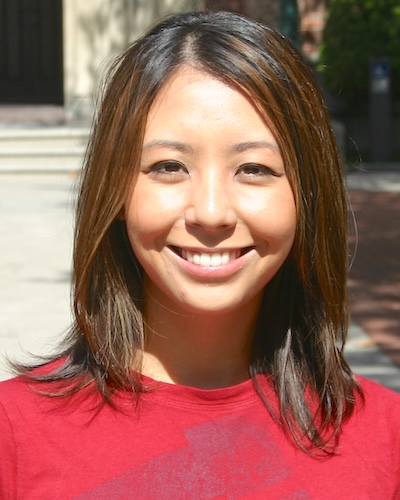
Second Week of the Spring Semester ⟩
January 18, 2011, by Carissa
Classes
Back to the second week of school for the last semester of the Master’s program! This semester I am taking 2 research courses, courses on Lifestyle Redesign, ergonomics, and motivational interviewing. This should be a good combination of skills that I really hope to put to good use in my future work. So far so good. I am pretty excited for the Lifestyle Redesign course, as we’ll get to help each other to form more healthy habits and routines. Last week, we were paired up in class, and we performed initial interviews on each other. In this class we’ll be able to help each other reach our goals we have made for our lives over the course of the semester. How fun is that? It will definitely be interesting! I have decided that I really need to work on organizing my time so I do not always end up procrastinating. I have a poor habit of worrying about a deadline coming up, not being able to fully enjoy everything else I’m doing because the deadline is in the back of my mind, but still waiting until almost the last minute to get things done. I am generally efficient during those last few hours before it is due, but I am sure there is a better way to go about doing things. I definitely could use a bit more balance in my life. Luckily, we are told that it is never too late to change those bad habits. We’ll see how it goes!
⋯
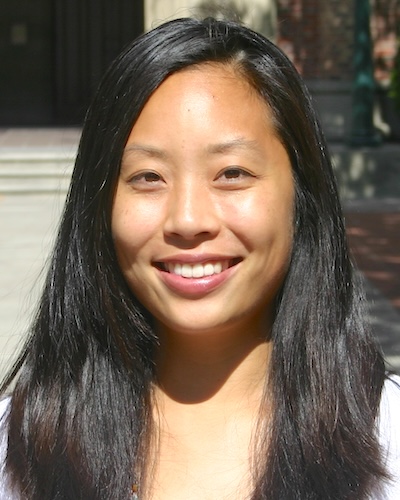
5 more months . . . ⟩
January 13, 2011, by Yao
Classes What are OS/OT?
My last Spring semester, I can’t believe it but I’m looking forward to my courses!
It’s the start of our last semester — I never thought that this time would actually come; I knew that it was coming but it was the ever-elusive last step until I enter the real world. Well it’s here. And oddly enough it promises to be one of my most diverse semesters and for once my choice of electives outweigh the number of core classes that I’ll be taking.
The first of my electives is “Sensory Integration,” which was introduced to me while volunteering at a local occupational therapy clinic whose main treatment revolved around sensory integration. After seeing how it positively affected the children were engaging in treatment at the clinic sparked my interest. Ever since my first pediatrics class I’ve been fascinated by the fact that your senses can be used as processors and organizers of information from the environment. As a result some people may have issues using their senses to organize their environment and as a result may react negatively to their environment. This is going to be a very interesting and intense course in addition to being a typical class it also counts as one of four parts of a SIPT al certification in sensory integration through USC and WPS for practitioners. One of the things that I’m most excited about regarding this course aside from the material is that both of our teachers actually studied with and knew A. Jean. Ayres (the woman who developed the sensory integration as it is used in occupational therapy, here at USC)!
My second elective is motivational interviewing. Motivational interviewing can be a way of gathering information from potential clients as well as a relationship-building tool. I decided to take this class because not only would it provide another type of training that would best benefit potential patients but also can be used in furthering my OT skill project that a classmate and I will be presenting on in April in Philadelphia. Especially in this day and age it is very important to gather as much information about the person and their lives throughout the process of rehabilitation to ensure the success and relevancy of treatment.
And the third and last elective that I will be taking is a course that is offered at Keck Hospital of USC. It’s another opportunity to gain hands on clinical experience with the hospital population, which is one that I’m highly interested in. And it’ll be the first elective and fieldwork that I’ll be able to wear scrubs! Believe it or not I haven’t worn a pair of scrubs as a part of fieldwork or as part of my elective courses.
It’s so sad that although this semester is going to be full of meaningful classes and plenty of group outings and projects, it will be the last semester that all my classmates and I will be together, in the same place, on similar schedules. Through my experience in graduate school I’ve began to learn the importance of enjoying the moment and not focusing too much on the future because you’ll lose sight of the present. Here’s to an amazingly awesome last Spring semester!
⋯
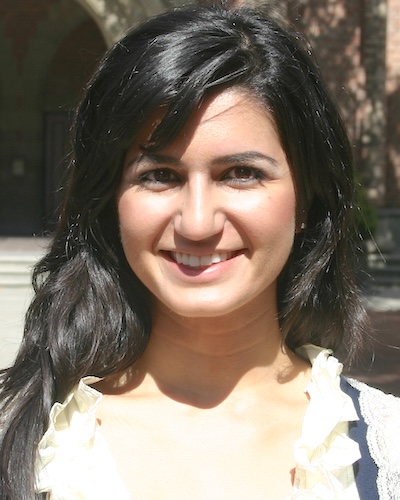
The Program is Flying By! ⟩
January 3, 2011, by Helen
Classes Getting Involved What are OS/OT?
It feels like just yesterday I was in the application process for the master’s program, anxious to learn Occupational Therapy and to one day become a therapist!
As 2010 just came to an end, I cannot believe that I only have six months left of the master’s program. In the last year and a half, it is amazing how much information we have covered. The first year flew by, providing us with a foundation of knowledge about pediatric OT, OT in the field of physical disabilities, geriatric OT, and OT in the fields of psychosocial/mental health. This second year, we have focused on learning how to build a therapeutic relationship with our clients, improving our listening skills, and understanding the theory behind our practice. By focusing on learning the history of where our profession has been, what the current state of our profession is, and where our profession is going, we are able to more creatively think about our own areas of interest. By better understanding what there is a need for in our profession, ideas of advocacy, research, and leadership are emphasized.
As a result of having learned so much about health care access, the history of our profession within the medical model, and the progression of current research, I have an increased interest in political advocacy and occupational therapy. Last year, I chose to get involved with an organization called CAHPSA (the California Health Professional Student Alliance). Currently, we are a week away from hosting Lobby Day in Sacramento. On January 9th and 10th, 200-500 health professional students will be traveling to Sacramento to meet with assembly members and senators to discuss how Health Care Reform will impact our personal professions.
One of my favorite aspects of our program has been the emphasis on understanding the theory behind our practice and the value for being aware of our professional past, present, and future. This value for the history of our profession is what has inspired me most to impact the future of occupational therapy practice.
⋯
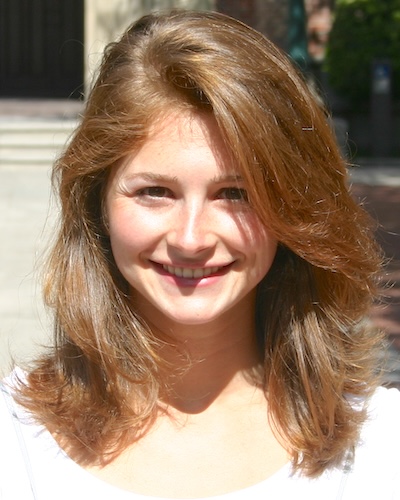
Clinical Coursework ⟩
December 17, 2010, by Amanda
Classes What are OS/OT?
The path to becoming a clinician . . .
To continue delivering a picture of my experiences in studying occupational science and therapy at USC, I will introduce the clinical coursework. To pursue occupational therapy at some point we all decided that this was a career choice that fits our interests, academically and professionally. Before entering the program, I wondered, ‘how do you know what to do?’; when faced with a client with any number of strengths and limitations in occupational functioning, what is the first step? Furthermore, occupational therapists work with people on a whole continuum of diagnosis and conditions. How does occupational therapy school prepare the practitioner to work with both an individual referred for mental health services and an individual referred for a traumatic brain injury? As I previously explained in a blog post, the summer coursework lays the foundation for analyzing occupation. The first year is to start building your clinical skills. To be prepared to work in the physical disabilities, mental health, pediatrics, and geriatrics setting, there is clinical coursework for each practice area.
In my first year, the structure of the program was you had Fall and Spring courses in physical disabilities. The content covered in this course sequence is evaluation, goal-setting, and intervention planning in relation to various conditions that a practitioner would see in a hospital or clinic setting. Students learn how to identify occupational strengths and deficits as well as the evaluation of underlying skills, such as strength and range of motion. There is also lab based work weekly that involves exploring such varying topics as the uses of adaptive equipment as well as splinting. Also in lab, there is a functional kitchen, bedroom, and bathroom where you practice various techniques learned in therapy such as functional transfers and preparing for occupation-based interventions. You also have the opportunity for an off-campus visit to a national rehabilitation hospital to see occupational therapy in practice.
Mental health also followed Fall and Spring course sequences. Our first semester introduced us to many topics concerning the experience of occupation in relation to such concepts as interests, temporality, habits and the environment. We learned about occupational narrative and its therapeutic use as well as a series of evaluations that are valuable when assessing occupational function. What I loved about this course was its applicability to the other occupational therapy practice areas. For example, it really affirmed my belief that occupational therapists seek to influence not just the condition of having a physical disability but also the person that is experiencing it! The Spring course in mental health continued to explore occupation but to a greater extent its practice in mental health. You really gain an understanding of the efficacy of occupational therapy interventions for those experiencing occupational dysfunction.
Preparation for pediatric therapy comes in a two course sequence as well. In the Fall semester, we studied development. This course covered what you would guess: the development of the child in relation to occupational performance. A series of lectures ranging from reflexes to vestibular to visual development are presented in relation to a child’s age and condition. Students are also introduced to various assessments used in pediatrics. In the Spring, the student’s knowledge in pediatric practice is expanded through the exploration of the various practice areas, such as school-based versus early intervention clinics, and introductions to different intervention strategies, like sensory integration. Students have a few labs off-campus where we were able to observe therapists in the various pediatric settings.
A practice area where demand for occupational therapists is on the rise is in geriatrics. Our clinical coursework in aging involves the physical, cognitive, environmental, and emotional challenges that individuals and their families face during the aging process. I loved this course for our engaging discussions, such as occupational therapists role in hospice care, and for encouraging occupational therapists to be involved in the prevention of decline and maintenance of wellness, as seen in USC’s Well-Elderly Study. As I am interested in occupational therapy practice in geriatrics and always felt very empowered that as an occupational therapist I will be able to make a difference in the lives of people through the power of engaging in meaningful occupation!
In summary, the clinical coursework you will take at USC prepares you to view an individual through an occupational lens whether he or she is a child, adolescent, adult, or older adult referred for varying reasons. You are prepared to evaluate individuals and create interventions that address the physical, social, emotional, environmental, and cognitive components of occupation. This all sounds like a lot in your first year, but there’s MORE! You also have coursework that supports your development of clinical skills. To Be Continued!
⋯
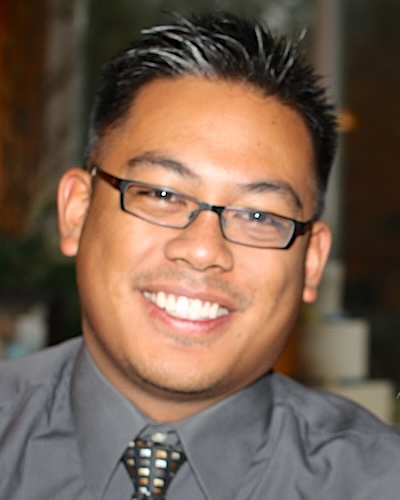
Fall semester is done! ⟩
December 14, 2010, by Pierre
Beginnings and Endings Classes Community
It truly has been a great experience here at USC. I can just remember the first summer semester like it was yesterday . . . and now, I have 1 more semester to go and 1 more fieldwork to experience and then almost done! Can’t say I’m looking forward to comprehensive exams at next year or studying for the NBCOT exam, but I’m happy to have gone to USC for my education. They say all education is the same — in the end you get the same degree, but with the debt is the main difference.
It’s true, that USC didn’t have the lowest tuition among the schools I was applying to last year, but I can say that all the classes, the teacher interaction, the scholarships available, the resources abounding, the OT history among our hallways, the career positioning within the city, the diverse/international fieldwork affiliations, the networks you create, the USC name behind the degree, and the overall supportive culture among the students and faculty are beyond tuition costs. It’s one thing to base an education on financial costs vs quality of education . . . USC puts student learning first and really seeks to prepare us for the real world of OT.
⋯





